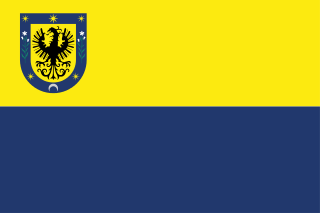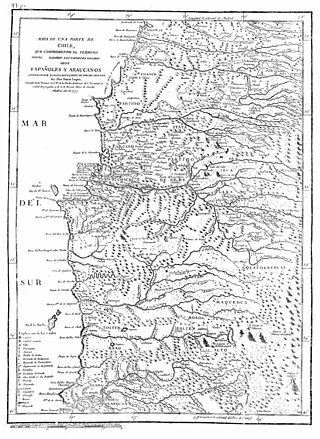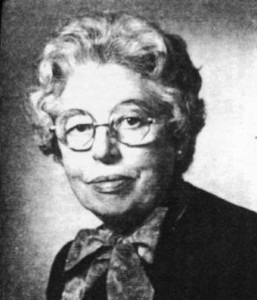Related Research Articles

Chile's 2017 census reported a population of 17,574,003 people. Its rate of population growth has been decreasing since 1990, due to a declining birth rate. By 2050 the population is expected to reach approximately 20.2 million people, at which point it is projected to either stagnate or begin declining. About 85% of the country's population lives in urban areas, with 40% living in Greater Santiago alone. The largest agglomerations according to the 2002 census are Greater Santiago with 5.6 million people, Greater Concepción with 861,000 and Greater Valparaíso with 824,000.

Concepción is a city and commune in south-central Chile, and the geographical and demographic core of the Greater Concepción metropolitan area, one of the three major conurbations in the country. It has a significant impact on domestic trade being part of the most heavily industrialized region in the country. It is the seat of the Concepción Province and the capital of the Bío Bío Region. It sits about 500 km south of the nation's capital, Santiago.

The 1973 Chilean coup d'état was a military overthrow of the democratic socialist president of Chile Salvador Allende and his Popular Unity coalition government. Allende, who has been described as the first Marxist to be democratically elected president in a Latin American liberal democracy, faced significant social unrest, political tension with the opposition-controlled National Congress of Chile which passed a resolution in August 1983 condemning Allende for his authoritarian tendencies, creation of militant groups and attempts take control of the military. The resolution called on “the President of the Republic, Ministers of State, and members of the Armed and Police Forces" to "put an immediate end" to "breach[es of] the Constitution”. On 11 September 1973, a group of military officers, led by General Augusto Pinochet, seized power in a coup, ending civilian rule.

The Green Ecologist Party was a Chilean political party and one of South America's members of the global green movement.

The Arauco War was a long-running conflict between colonial Spaniards and the Mapuche people, mostly fought in the Araucanía region of Chile. The conflict began at first as a reaction to the Spanish conquerors attempting to establish cities and force Mapuches into servitude. It subsequently evolved over time into phases comprising drawn-out sieges, slave-hunting expeditions, pillaging raids, punitive expeditions, and renewed Spanish attempts to secure lost territories. Abduction of women and war rape was common on both sides.

Manuel Jesús Baquedano González was a Chilean soldier and politician, who served as Commander-in-chief of the Army during the War of the Pacific, and briefly as President of Chile during the civil war of 1891.

Agustín Yáñez Delgadillo was a Mexican writer and politician who served as Governor of Jalisco and Secretary of Public Education during Gustavo Díaz Ordaz's presidency. He is the author of numerous books and the recipient, in 1952 as member of the Academia Mexicana de la Lengua, in 1973, of the Premio Nacional de las Letras. Al filo del agua is considered his most important work, according to the Encyclopedia of Latin American and Caribbean literature, 1900-2003 By Daniel Balderston, Mike Gonzalez, page 616.

Huachipato FC is a Chilean football club based in Talcahuano that currently plays in the Chilean Primera División. Huachipato was founded on 7 June 1947 by workers of the homonymous steel mill in Talcahuano, and it currently plays its home games at the Estadio Huachipato-CAP Acero, which it owns, making it one of the five Chilean professional football clubs to own their own ground. Originally a multisports club, Huachipato became a football club in 2015.

Héctor Hernán Caputto Gómez, known as Hernán Caputto, is an Argentine naturalized Chilean football manager and former footballer who played as a goalkeeper. He was recently the manager of Deportes Copiapó.
Esteban Eduardo González Herrera is a Chilean football manager and former footballer who played as a midfielder. He is the current assistant coach of Fernando Dí
Julio César Abatte was an Argentine footballer who played as a midfielder for clubs in Chile. He was born in Mendoza.

The Pisagua internment camp was a concentration camp in Pisagua, Chile.

Generación del 13 was Chile's first painter collective. Its name derives from the year 1913, after a joint exhibition was held at the Salon of the Chilean newspaper El Mercurio in the preceding year. The group and its work are characterized by a fascination with Creole art and customs, social criticism, and portrayal of the proletariat, a subject that hitherto was not depicted in Chilean art.

Salvador Nocetti Ballardo was an Argentine naturalized Chilean football manager and player who played as a midfielder.

José Antonio Kast Rist, also known by his initials JAK, is a Chilean lawyer and politician. Kast ran for president in 2021, winning the first round and losing in the second round run-off to Gabriel Boric.

A ceacheí, also known as cehacheí, is a battle cry that is commonly used during sports events to cheer on a Chilean representative. This Chilean expression is derived from spelling out the first letters of the name "Chile." It is typically performed by two voices that come together for the final part, as follows:
Carlos Israel Verdugo Concha is a Chilean professional former footballer who played as a forward for clubs in Chile and El Salvador.

The revolution of the chaucha was a demonstration held on August 16 and 17, 1949, in Santiago, Chile, against the proposed increase in the price of public transport tickets by 20 cents of the Chilean peso.

María Concepción Zardoya González, also known as Concha Zardoya, was a Chilean poet and literary critic. During her career, she published nearly 40 poetry collections and won multiple literary awards.
Gregorio de la Fuente was a Chilean painter and muralist. Along with artists Julio Escámez, José Venturelli, Fernando Marcos, Fernando Daza and Pedro Olmos. He is one of the important representatives of the Chilean muralist movement of the 20th century, largely influenced by Mexican muralism.
References
- ↑ Zunino, Daniella; Lüders, Marily (19 March 2005). "La Ley del Cobre en la mira, los disparos de los economistas". El Mercurio. Retrieved 18 December 2019.
- ↑ Anales de la República (in Spanish). Andrés Bello. 1951. Retrieved 18 December 2019.
- ↑ Pavilack, Jody (2011). Mining for the Nation: The Politics of Chile's Coal Communities from the Popular Front to the Cold War. Penn State Press. ISBN 978-0-271-03769-1 . Retrieved 18 December 2019.
- ↑ Loveman, Brian; Lira, Elizabeth (2000). Las ardientes cenizas del olvido: vía chilena de reconciliación política 1932-1994 (in Spanish). Lom Ediciones. ISBN 978-956-282-287-9 . Retrieved 18 December 2019.
- ↑ Fagandini González, Piero (2012). "Chilarco" (PDF). Revismar 2/2012 (2).
| Preceded by: Guillermo Troncoso Palacios | Subsecretario de Marina 1937-1938 | Followed by: Carlos Herrera Acevedo |